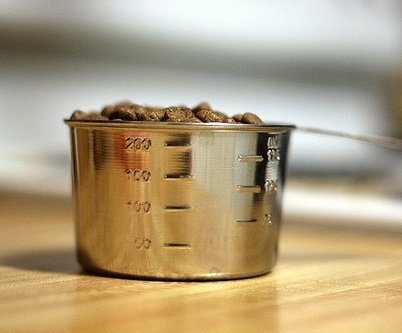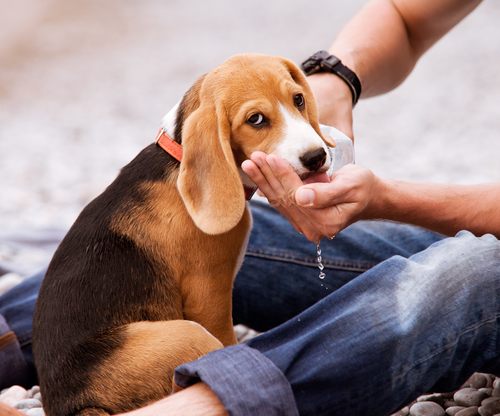
Contents
Related: Have a Lethargic Puppy? Find Real Illness Behind
Do Dogs Get Headaches: What the Experts Say
Experts state that pups can get headaches just as humans do, although this is not able to be proven since you cannot just ask a canine if his head hurts or not.
However, vets speculate that if a pet has a similar structure within their heads that it is more or less common sense that a dog could get a headache. Not to mention, dogs exhibit similar symptoms to humans when a professional speculates it may be a headache.
These headaches range in causes; however, it is known that issues like allergies affect dogs the same way they do humans, which means a sinus pressure headache is possible.
The Journal of Veterinary Internal Medicine published one case of a Cocker Spaniel exhibiting signs of migraine headaches, as reported by the Royal Veterinary College in England. The female dog was spayed and five years old and had no other issues along with normal laboratory test results.
When she arrived at the teaching hospital, she was yowling and exhibiting fear-based behavior for up to four hours for three days. She was drooling excessively. She had light and sound sensitivity and appeared to be in pain.
About twice a year, she was having similar episodes since the time she turned five months of age. An MRI indicated a probable seizure disorder that was causing the migraines, which was treated with phenobarbital, a barbiturate used in humans.
Symptoms
When answering the question do dogs get headaches, vets have compared signs that happen in humans to the ones pups show. A pooch may experience:
- Hyperactivity such as nibbling or having trouble standing still
- Sensitivity to light or sound. He may seek out a dark, quiet place until a headache subsides.
- Does not want to be touched and may react negatively when touched. He may cringe.
- Ataxia
- Unresponsiveness
- Clumsiness
- Sweating
- Lowered head
- Changes in posture
- Aggressiveness
- Head shaking
- Irritability
Other possible symptoms include:
- Head pressing
- Furrowed brows
- Staring
- Squinty eyes
- Frequent blinking
- Body shakes
Your furry friend may not be interested in playing, no matter which activity you try. He may not want to go for a walk, and he may even have no desire to eat.
Causes
The causes are similar to those of humans. Sinus headaches are a problem for our furry friends. They have olfactory receptors that are 20 times stronger than humans. This means when a scent bothers them, it is more intense for them than it is for a human.
Neck or head trauma is one cause such as a dog falling from a chair, down the steps or off of a grooming table. Crating a dog improperly can cause a headache and so can dental problems, jerking on his collar too much or exposure to certain chemicals.
Hormones, intense physical activity, temperature, certain deficiencies or internal issues. The headache may be a result of losing an owner or an animal buddy or traveling a long distance.
How Common Is It
There is not a way to tell how common it is in dogs because they can get have a headache and show no signs except in cases where they pain is severe.
Treatment
Let your pet rest or hide when he wants to. Treating the headache or a migraine may require treatment of the underlying cause such as by getting dental work. A change in the pup’s routine might be necessary.
Chiropractics shows to have an improvement in the pain and so does craniosacral therapy and Tellington TTouch. Pain relievers may be given to the lovable lug to reduce the pain.
The vet has specialized medicine that’s safe and effective.

I have lived in big cities my entire life. Having grown up on the Upper East Side in Manhattan, my early life was an exciting one, filled to the brim with interesting encounters and opportunities popping up at every street corner. Like many city people, my passion for dogs first started when my parents decided to bring a puppy into the household. For them, it was a way of getting me to spend less time at his computer or wandering aimlessly around the city with my friends. Little did they know that bringing a Labrador Retriever into their apartment would determine not only the course of their son’s professional career but also my love life.
Having obtained a Computer Science Bachelor’s degree from Fordham University, I went on to pursue an IT career in the Big Apple. After a few years of doing basic cybersecurity and tech support work in various offices around Manhattan, I decided to leave New York and look for my calling in Boston, Massachusetts. There, I got a Master’s degree in Computer Science with a specialization in Web Development. As a means of supporting myself through college, he found a salesman job at a local paper company, where he met Mary, the love of my life and the person I’d end up creating My Sweet Puppy with.




Sometimes when I’m sitting my dog will keep putting his paw on me would that be an indication of anything
Thanks for connecting to Mysweetpuppy.net. Please keep in mind that I, Claudia Bensimoun, do not write any of the blogs or reviews on this website, nor have I in the past. I only answer the comments section.Your dog wants your undivided attention, and wants to play or go outside to go potty. Dogs get bored, and need to have a regular exercise schedule with plenty of off-leash trips to the dog park or dog beach. They also need to play with other dogs, and be around other people. Opt for fun, colorful dog toys that are mentally stimulating. Also include your dog in many of your outings. Trips to the local Starbucks are a plus for that special Puppuchino!
We got 2 puppies in September. I have been to 3 vets trying to find out what is wrong with one of the sweet pups
This is a reoccurring problem. She flinches and helps when you touch her head. In the more severe cases she has had a fever and lethargy. After a round of antibiotics and anti inflammatory meds she will be good as new. Last time we treated it with a couple of days of anti inflammatory meds and no antibiotics and she was perfect after. She will be fine for a week and then the head soreness will come back. Any insight would be greatly appreciated.
Thanks for connecting to Mysweetpuppy.net. Please keep in mind that I, Claudia Bensimoun, do not write any of the blogs or reviews on this website, nor have I in the past. I only answer the comments section.Because you’re familiar with your puppy, you can also watch for signs of illness like decreased appetite, vomiting, diarrhea, coughing, and mention those to your veterinarian.Your puppy will need to do follow-up visits with your veterinarian after the antibiotics. You can also inquire as to bloodwork. In addition,make sure that your puppy has plenty of fresh water available 24/7. Being hyper reactive to touch on her head, cringing, and ataxia, are signs of headaches. Tellington TTouch and aura work will also help your pup to relax. Keep consulting with your veterinarian to find out the underlying cause, so that you can treat it.